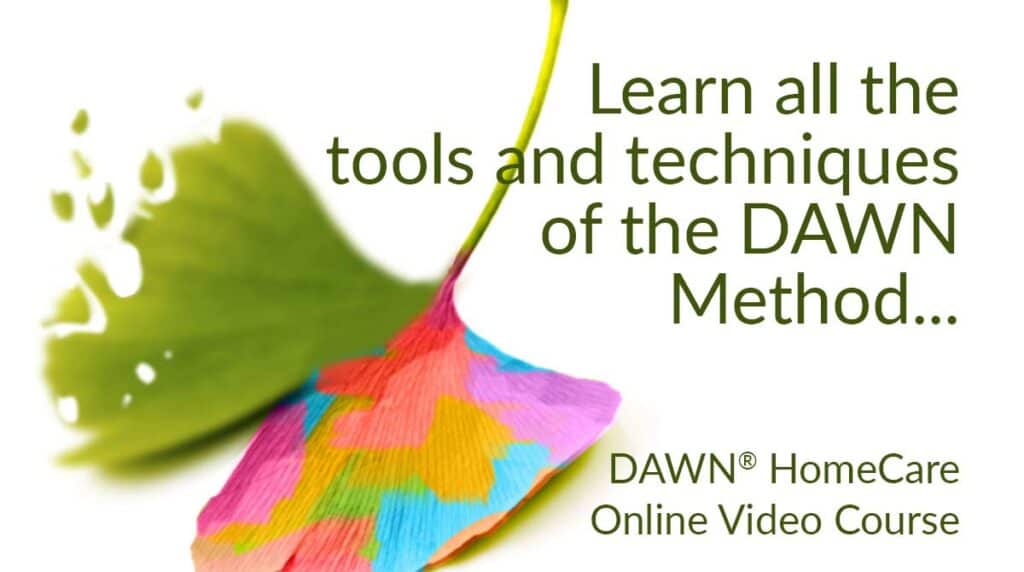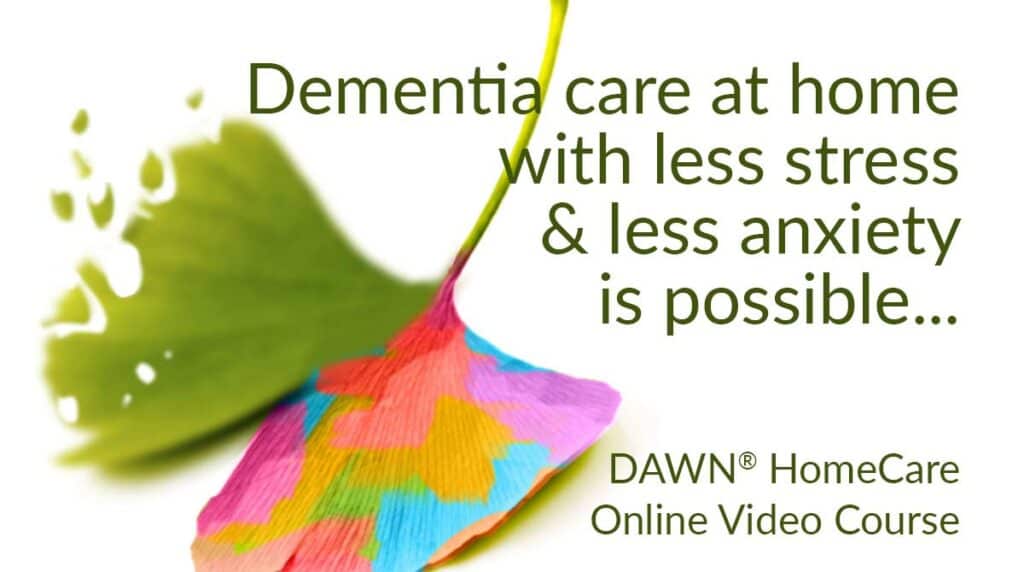The DAWN Method is an approach that teaches care partners to look for the emotional needs that lead to behaviors for people who have dementia. We teach care partners to first recognize and meet their loved ones’ security needs, so they can feel safe even though they are confused, need others to care for them, and cannot manage their own moods. But we also teach caregivers to enhance their charge’s sense of well-being. One of the essential components of well-being is to feel valued—to have a role to play and to be needed and appreciated in relationships. When dementia strikes, keeping this intact takes conscious effort on the care partner’s part.
The best gift for someone with dementia may be helping them to give.
Being able to give gifts can be an important aspect in feeling a sense of value. So how can we help our loved ones who have dementia enjoy taking part in birthdays and the holiday season? Eventually, as dementia progresses, the awareness of gift giving will diminish, but until it does we need to help them feel successful in expressions of love and generosity.
Tips for helping our loved ones with dementia participate in giving gifts
Make choosing gifts easier.
When someone is losing memory and rational thought, keeping track of dates, names, and facts becomes increasingly difficult. We as care partners should take care of these functions. You might begin by sitting down together and compiling a list of the people your loved one would like to give something to, then identifying what that would be for each person.
Reserve the actual purchasing for another day. Go shopping together, list in hand, and address one person at a time, checking off each name as you go. Treat finding each gift as a separate task that can be successfully completed. It will probably be best to tackle the list on more than one day.

We’ve found with our clients that selecting one gift for all the women and another for all the men makes the task easier to comprehend. One of our clients felt very successful and fulfilled by sending each woman in his large family a scarf and each man a sweater. We were careful to buy the gifts at a major department store and slipped gift tags into the boxes so the recipients could exchange them as they wished. Our client could never recall what he’d sent as gifts, but he benefited greatly from going through the process of selecting, purchasing, wrapping, and mailing each parcel to his widespread family, with his care partner.
Be a teammate. Invite fun.
This is another opportunity to help your loved one avoid the withdrawal into passivity that results from recurrent failure. Selecting and preparing gifts is a process, one that includes multiple steps and provides repeated opportunities for experiencing success.
So, our goal is not to have all the presents wrapped and ready to mail or distribute on time. Rather, it’s to see our loved one enjoy each step along the way—to have experienced joy in selecting, wrapping, and sending gifts. If the parcels you manage to complete are sent late, but your loved one has experienced the endorphin rush that accompanies accomplishment, you’ve succeeded spectacularly.
Focus on one step at a time.
Focus on one step at a time. Dementia truly is the time for measuring success in terms of how enjoyable a task is rather than its completion. When people are losing rational thought, they lose the ability to prioritize actions and information, as well as the ability to follow directions and multiple steps in a sequence. Always focus on the single step at hand.
When we think of the holiday season as a journey, rather than a series of events, we can discover moments of beauty all along the way.
§
Learn more
Learn how to provide dementia care at home with the DAWN HomeCare Dementia Training for Families and their Caregivers video course (group membership for up to 6 people). The course includes 36 video topics. Share it with your family members and caregivers.


